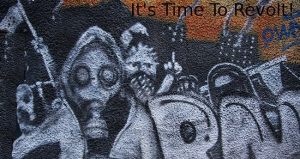Tag Archives: parole
Anarchist prisoner John Bowden denied parole (UK)
On the 22nd January 2019 after almost forty years in prison the Parole Board considered the case for either my release or continued imprisonment. In the case of life sentence or indeterminately sentenced prisoners once such prisoners have been detained for the length of time originally recommended by the judiciary or Secretary of State, in my case 25 years, then the Parole Board has a statuary and legal obligation and responsibility to review the case for either the release or the continued detention of such prisoners. At three previous parole hearings my release had been denied by the Parole Board on the grounds that I was a “difficult and anti-authoritarian” prisoner, and insufficiently obedient to prison authority; my actual risk or danger to the public, the prime official criteria for denying the release of life sentence prisoners, was never cited as a reason for my continued imprisonment.
At my parole hearing on the 22nd January all of the professionals employed to assess the potential risk of prisoners the community, prison psychologists, probation officers, etc., all provided evidence stating that my actual risk to the community was either minimal or non-existent and that I could be ‘safely managed’ outside of prison. My lawyer informed the parole panel that the three chief criteria determining the ‘suitability of release’ of life sentence prisoners [has the prisoner served a sufficient length of time to satisfy the interest of retribution?; does the prisoner represent a minimal risk to the community?; can the prisoner be safely managed in the community?] were all confirmed in my case and therefore there was no real lawful justification for my continued imprisonment, especially as I remained still in prison almost fifteen years beyond the length of time originally recommended by the judiciary. The issues raised by the parole panel were not in fact my potential risk to the community or potential for violent behaviour, all of which had been assessed by the system professionals who gave evidence at the hearing and who unanimously attested that my risk of either violent behaviour or risk to the community was minimal; the main concern of the parole panel was my propensity to challenge prison authority and my association with radical political groups on the outside, specifically Anarchist Black Cross. Representatives from the London Probation Service informed the panel that all of the groups that I was associated with were lawful and none were associated with illegal activity, and in terms of my relationship with the prison system whilst I continued to question and challenge what I perceived as abuses of power, I had not been involved in violent protest actions against the system for over twenty years. Continue reading















